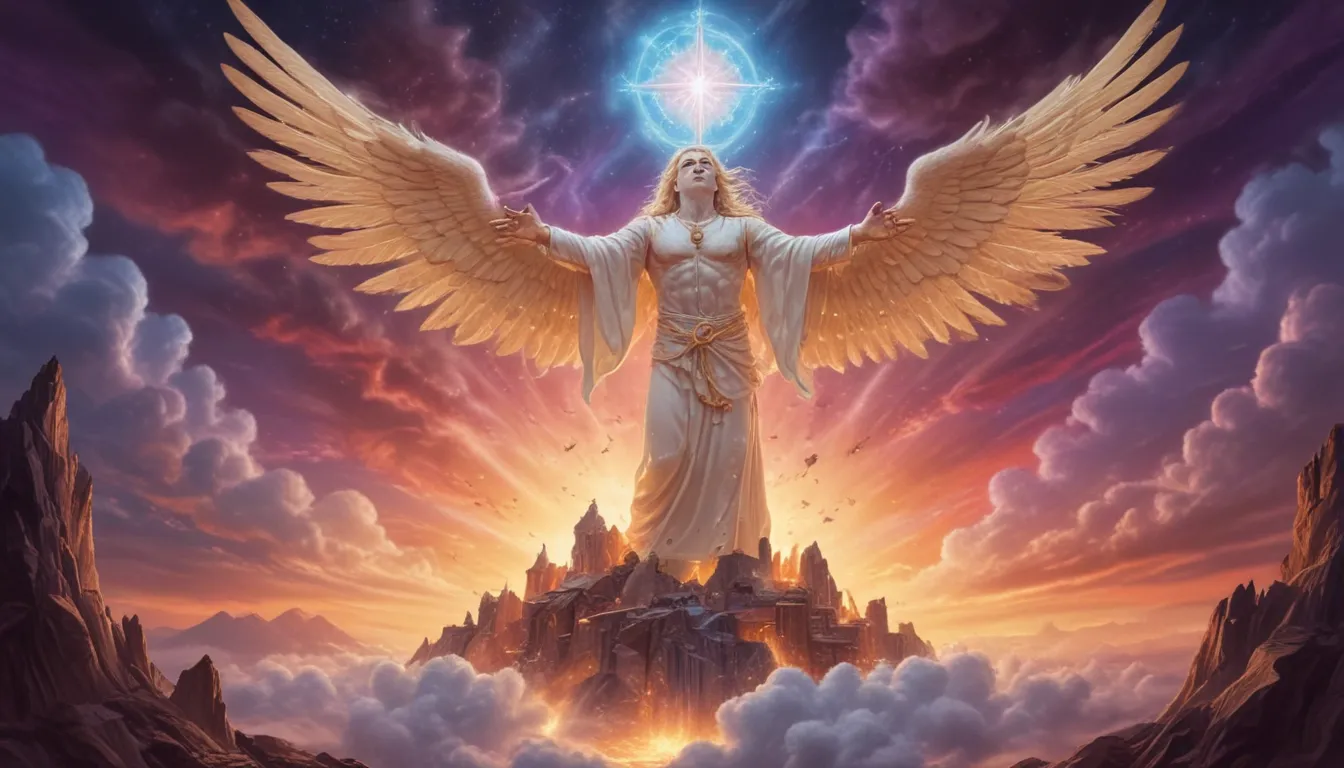
Introduction
The concept of spiritual forces of evil in the heavenly realms has been a subject of fascination, fear, and debate for millennia. This idea, deeply rooted in various religious and spiritual traditions, suggests that there exists a realm beyond our physical world where malevolent entities operate and influence earthly affairs. In this article, we will explore the origins, interpretations, and impact of this belief across different cultures and faiths.
Origins and Biblical References
The phrase “spiritual forces of evil in the heavenly realms” is most famously found in the Christian New Testament, specifically in the book of Ephesians. The apostle Paul writes:
“For our struggle is not against flesh and blood, but against the rulers, against the authorities, against the powers of this dark world and against the spiritual forces of evil in the heavenly realms.” (Ephesians 6:12, NIV)
This passage has been instrumental in shaping Christian theology regarding spiritual warfare and the nature of evil. However, the concept of malevolent spiritual entities is not unique to Christianity. Many other religions and belief systems have similar ideas:
Interpretations Across Different Traditions
Christianity
In Christian theology, the “spiritual forces of evil” are often associated with:
- Fallen angels: Celestial beings who rebelled against God
- Demons: Malevolent spirits under the command of Satan
- Principalities and powers: Hierarchical structures of evil spiritual entities
The concept of a celestial hierarchy of both good and evil spiritual beings is prevalent in Christian thought, influenced by both biblical texts and later theological developments.
Judaism
While less emphasized in modern Judaism, the idea of evil spiritual forces is present in some Jewish texts and traditions:
- The Talmud mentions various demons and evil spirits
- Kabbalah, Jewish mysticism, explores the concept of the sitra achra (the “other side” or realm of evil)
- Some Jewish folklore includes stories of dybbuks (possessing spirits) and other malevolent entities
Islam
Islamic theology also recognizes the existence of evil spiritual beings:
- Jinn: Supernatural creatures that can be good or evil
- Shayatin: Evil spirits or demons
- Iblis: The chief evil spirit, often equated with Satan
Zoroastrianism
This ancient Persian religion has a strong dualistic concept of good and evil:
- Ahura Mazda: The supreme benevolent deity
- Angra Mainyu: The evil counterpart, leading the forces of darkness
Characteristics and Attributes
The nature and abilities attributed to these spiritual forces of evil vary across traditions, but some common themes emerge:
| Attribute | Description |
|---|---|
| Invisibility | Often unseen by mortal eyes |
| Influence | Ability to affect human thoughts and actions |
| Hierarchy | Organized in ranks or levels of power |
| Supernatural abilities | Powers beyond human capabilities |
| Opposition to good | Fundamental enmity towards divine or benevolent forces |
The Concept of “Heavenly Realms”
The idea of “heavenly realms” or multiple spiritual dimensions is central to understanding the concept of spiritual forces of evil. This cosmology often includes:
- The physical world (Earth)
- A heavenly realm (abode of God or gods)
- Intermediate spiritual realms
- A realm of punishment (Hell, Underworld, etc.)
The “spiritual forces of evil” are often thought to operate in these intermediate realms, existing in a state between the divine and the mundane.
Impact on Human Beliefs and Practices
The belief in spiritual forces of evil has had profound effects on human culture, psychology, and behavior:
Religious Practices
- Exorcism: Rituals to expel evil spirits from people or places
- Prayer and meditation: Seeking divine protection against evil influences
- Talismans and amulets: Objects believed to ward off evil spirits
Psychological Impact
- Explanation for evil: Providing a framework for understanding the existence of evil and suffering
- Moral guidance: Encouraging adherence to religious or moral codes to avoid spiritual corruption
- Coping mechanism: Offering a sense of control in facing life’s challenges
Cultural Expressions
The concept of spiritual forces of evil has deeply influenced art, literature, and popular culture:
- Literature: From Dante’s “Inferno” to modern horror novels
- Visual arts: Depictions of demons, hell, and spiritual warfare in paintings and sculptures
- Film and television: Countless movies and shows featuring demons, exorcisms, and spiritual battles
Scientific and Skeptical Perspectives
While belief in spiritual forces of evil remains strong in many parts of the world, scientific and skeptical viewpoints offer alternative explanations:
- Psychological interpretations: Viewing demons and evil spirits as manifestations of the human psyche
- Sociological analyses: Understanding belief in evil spirits as a social construct serving various functions
- Neurological explanations: Attributing experiences of possession or spiritual attack to brain disorders or altered states of consciousness
Contemporary Relevance
Despite increasing secularization in some parts of the world, belief in spiritual forces of evil remains significant:
- Religious revivals: Growing interest in spiritual warfare in some Christian denominations
- New Age movements: Incorporation of concepts of negative energies or entities
- Psychological therapies: Some alternative therapies involve addressing supposed spiritual influences
- Global diversity: Persistent belief in evil spirits in many cultures worldwide
Ethical and Philosophical Implications
The concept of spiritual forces of evil raises profound philosophical questions:
- The nature of evil: Is evil a force, a absence of good, or something else?
- Free will: How does the idea of evil spiritual influence affect concepts of human agency?
- Theodicy: How can a good God allow evil spiritual forces to exist?
- Moral responsibility: To what extent can individuals be held accountable for actions influenced by evil spirits?
Conclusion
The belief in spiritual forces of evil in the heavenly realms has been a persistent and influential idea throughout human history. Whether viewed as literal truth, metaphorical representation, or cultural construct, this concept continues to shape religious thought, cultural expressions, and individual worldviews.
As humanity advances in scientific understanding and global communication, the interpretation and significance of these beliefs continue to evolve. For many, the idea of spiritual forces of evil provides a framework for understanding the complexities of human experience and the eternal struggle between good and evil. For others, it represents an outdated worldview that needs reexamination in light of modern knowledge.
Ultimately, the concept of spiritual forces of evil in the heavenly realms remains a powerful and enduring aspect of human spirituality and thought, inviting ongoing exploration, debate, and reflection on the nature of existence, morality, and the human condition.





